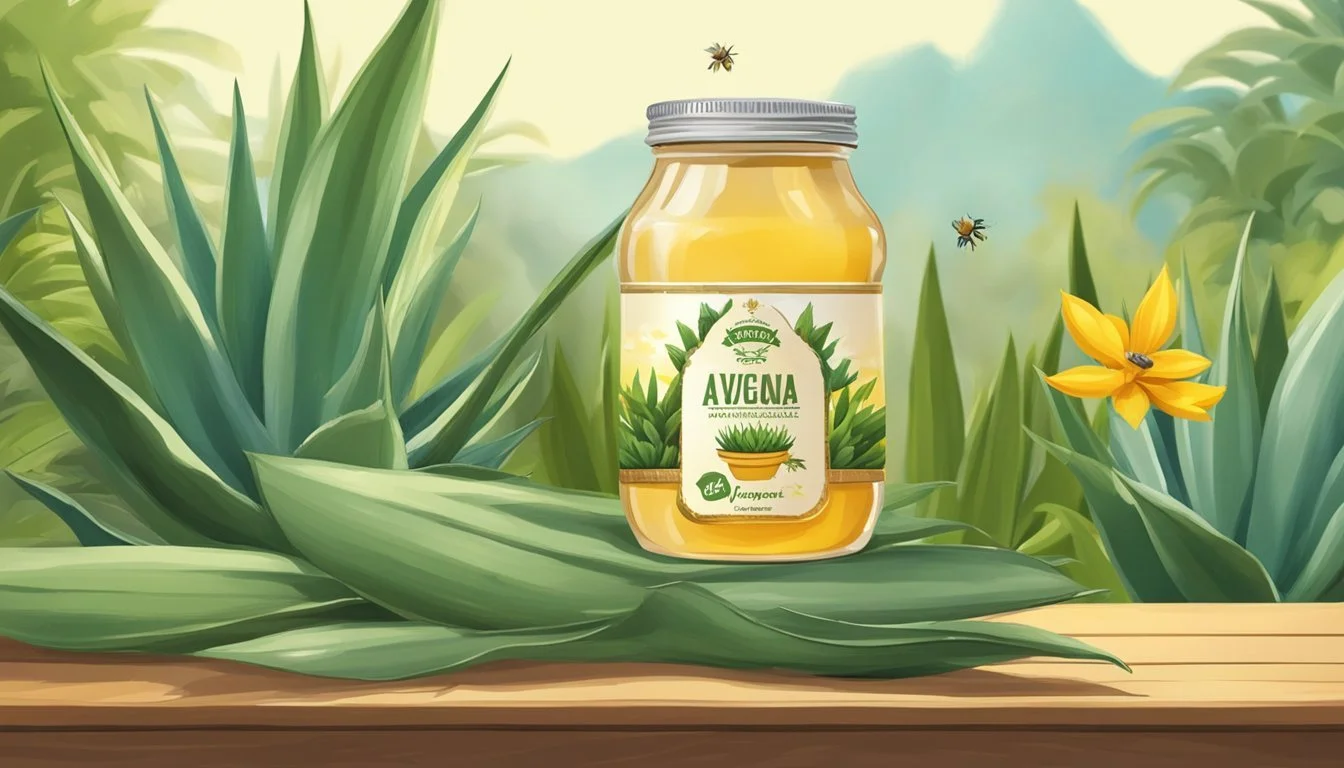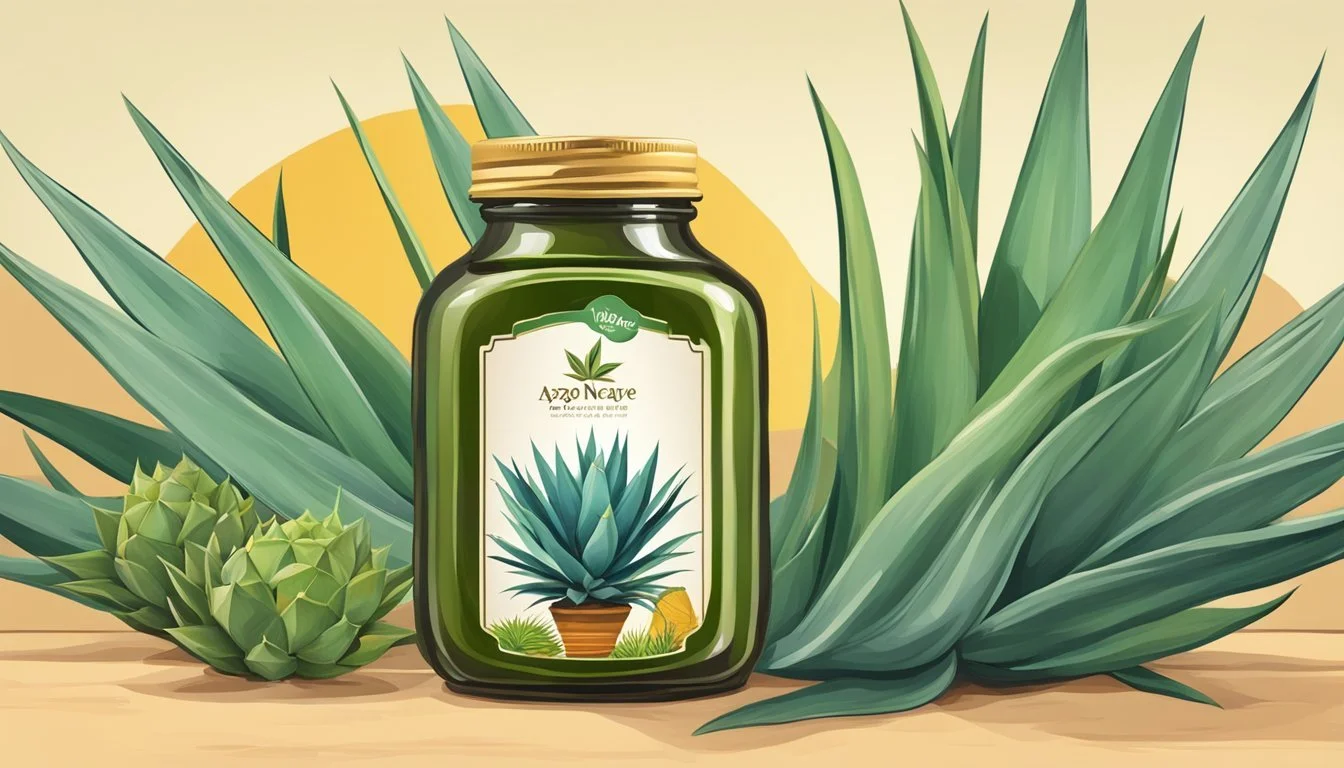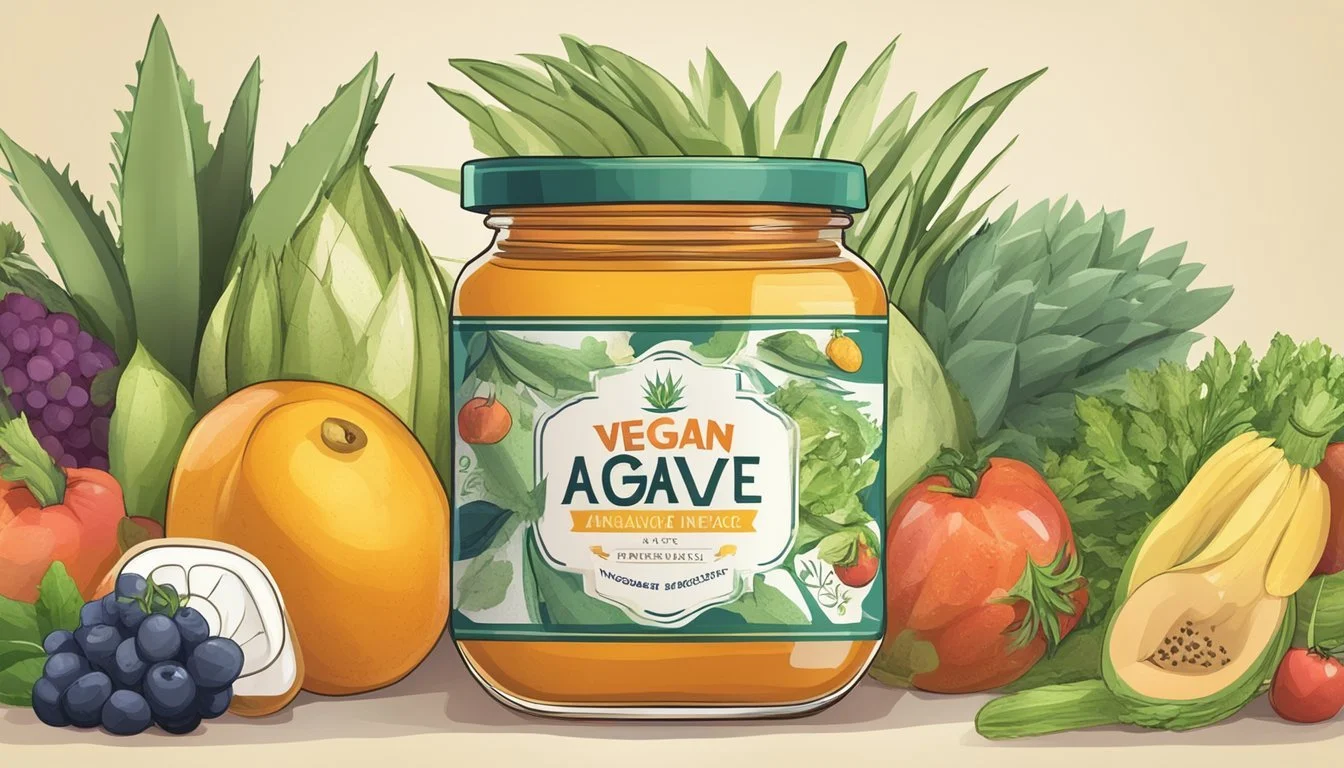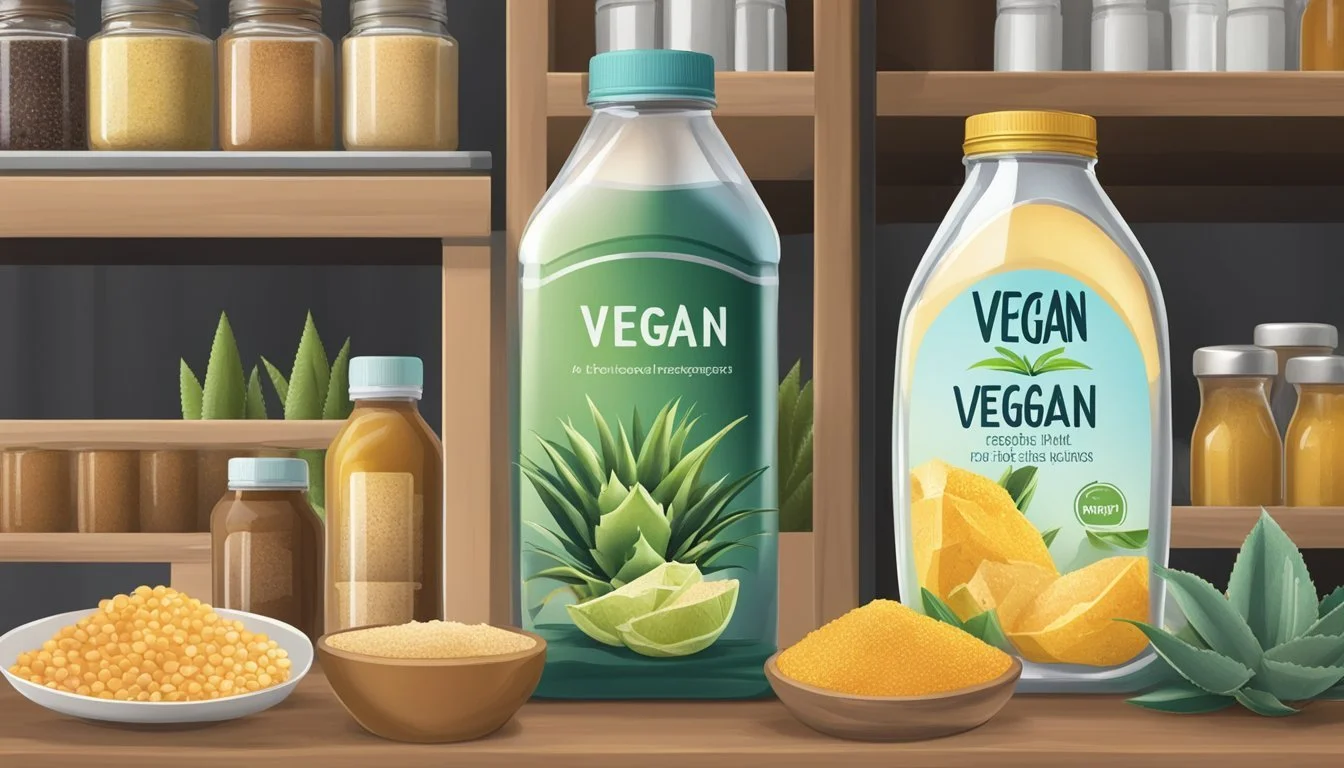Is Agave Nectar Vegan?
Debunking Common Myths
Agave nectar, a sweetener derived from the sap of the agave plant, is a popular alternative to traditional sugars and honey. With the rise of veganism, there is an increasing demand for sweeteners that align with vegan principles, which exclude the use of animal products. Agave nectar fits this requirement, as it is extracted from a plant source without the involvement of animals in its production process. This natural sweetener has found its niche within vegan diets as a substitute for honey, which is produced by bees and therefore not vegan.
Extracted mainly from species like the blue agave, this syrup has gained popularity not just for being vegan, but also for its distinct flavor profile. Plant-based diets favor it for its versatility and the ease with which it can be incorporated into a wide range of vegan recipes. The processing of agave nectar entails filtering and heating the sap to break down its complex carbohydrates into simple sugars, predominantly fructose, resulting in a liquid that is sweeter than table sugar and has a lower glycemic index.
The assurance that agave nectar adheres to vegan standards extends to various commercial products available on the market. Brands selling raw agave nectar ensure that the enzymes are kept intact by maintaining low temperatures during production. This adherence to vegan-friendly production processes makes certified agave products a fixture in vegan pantries, validating its status as a natural, plant-derived sweetener suitable for vegan consumption.
What Is Agave Nectar
Agave nectar is a natural sweetener derived from the sap of the agave plant. It offers versatility in culinary applications due to its various types and flavors.
Origins and Source
The sap used to produce agave nectar is extracted from the agave plant, specifically from species such as Agave tequilana (also known as blue agave). Agave tequilana is iconic for its role in the production of tequila and is the primary source for high-quality agave syrup.
Types of Agave Nectar
Agave nectar comes in several forms:
Light agave, which is minimally processed to maintain a neutral flavor, making it suitable for sweetening beverages and delicate-tasting dishes.
Amber agave nectar that features a medium-intensity caramel flavor, apt for recipes where a subtle sweetness is desired.
Dark agave nectar possesses a robust flavor, darker color, and is preferable for recipes that can stand up to its strong profile, such as desserts.
Production Process
The production process of agave nectar involves extracting sap from the agave plant, followed by filtering and heating to break down its carbohydrates into sugars. Raw agave nectar is produced at temperatures below 118°F to retain the plant's natural enzymes. Generally, organic agave syrups follow a production method that avoids synthetic materials, aligning with organic certification standards.
Agave Nectar and Veganism
Agave nectar, also known as agave syrup, is a sweetener commercially produced from various species of agave plants. It has risen in popularity within the vegan community as a plant-based alternative to sugars refined using animal products, like bone char, and honey, which is not considered vegan as it involves the exploitation of bees.
Definition of Vegan-Friendly
Vegan-friendly products are those that do not contain animal ingredients or byproducts and have not been tested on animals. Agave nectar falls under this category as it is derived from the sap of the agave plant and involves no animal products in its collection or manufacturing process. It is a suitable sweetener for those on a vegan diet looking for sugar alternatives.
Comparisons to Honey
While honey is a natural sweetener, it is animal-derived and not vegan, as it involves the exploitation of bees. In contrast, agave nectar is a vegan alternative as it is plant-based, extracted from the core of the agave plant, and processed without any animal involvement. Its sweetness and texture make it a popular substitute for honey in vegan recipes.
Potential Non-Vegan Ingredients
Some agave nectar brands may process or filter their products using non-vegan methods, such as bone char, which is charred animal bones. Consumers should look for labels that specifically mention the absence of such non-vegan processes. Vegan certification can ensure that agave nectar is free from these potential non-vegan ingredients.
Vegan Certification
Vegan certification from organizations like The Vegan Society is a reliable indication that agave nectar has met strict vegan standards. Certification often involves ensuring that the product, including its production and processing, is free from animal-derived substances. Kosher certification is also common among agave nectar brands and can often overlap with vegan standards, though it primarily ensures compliance with Jewish dietary laws.
Nutritional and Health Considerations
When considering agave nectar's place in a vegan diet, it is essential to understand its nutritional profile and its impact on health. This includes evaluating its sweetness relative to other sweeteners, the glycemic index, potential health benefits or concerns, and its role in maintaining dietary balance.
Comparison with Other Sweeteners
Agave nectar is a plant-based sweetener derived primarily from Agave tequilana and Agave salmiana plants. Its carbohydrate content is around 15.81 grams per tablespoon, marginally less than honey's 17.3 grams. Unlike high-fructose corn syrup or white sugar, agave nectar is vegan-friendly and is often compared to natural sweeteners like maple syrup, though it is higher in fructose.
Glycemic Index and Blood Sugar Impact
Agave nectar has a relatively low glycemic index (GI), which means it causes a less immediate spike in blood sugar levels compared to high-GI sweeteners like white sugar or corn syrup. This is largely due to its high fructose content, which has a lower GI than glucose. However, this does not mean it's free from impacting blood sugar, and its consumption should still be moderated, particularly for individuals with diabetes.
Health Benefits and Concerns
While agave nectar is marketed as a natural sweetener and implies health benefits associated with its low GI, the high fructose content can pose health concerns if consumed in excess. Fructose digestion does not require insulin, which suggests agave nectar may be better for blood sugar control, but high intake may lead to other health issues like liver stress.
Moderation and Dietary Balance
Agave nectar should be consumed in moderation within a balanced diet. Its caloric value is similar to that of other sweeteners, and it should be integrated into one's diet with mindfulness towards overall carbohydrate and sugar intake. For individuals with dietary conditions like diabetes, agave nectar's use should be carefully managed to maintain stable blood sugar levels.
Culinary Uses and Applications
Agave nectar has become a staple in vegan kitchens for its natural sweetness and versatility in various dishes and drinks. It acts as a plant-based alternative to traditional sweeteners, seamlessly integrating into vegan and plant-based recipes.
Baking and Cooking
In baking, agave nectar serves as a pivotal ingredient for adding sweetness without the use of animal-derived products. Bakers often opt for agave syrup because it has a low glycemic index and is sweeter than sugar, so less quantity is required. It works well in recipes for cookies, cakes, and other desserts such as chocolate confections. Chefs also use it in hot waffles and candy, relishing its ability to enhance flavor without overpowering dishes.
Sweetening Beverages
Agave nectar excels as a sweetener in both hot and cold beverages. Being highly soluble, it is especially convenient for sweetening coffee and tea. Its usage extends to smoothies and cocktails like the margarita, where its subtle flavor can complement other ingredients without the granularity that can come from undissolved sugar granules.
Vegan Recipes and Substitutions
When it comes to vegan and plant-based recipes, agave syrup is the go-to substitute for honey due to its similar consistency and natural origin. It adapts well to a range of vegan recipes, enhancing the taste profile in anything from breakfast items like waffles and pancakes to beverages and dressings. It is also an asset in crafting homemade vegan chocolate, adding a touch of sweetness without the bitterness that can sometimes occur with other sweeteners.
Practical Tips and Storage
When incorporating agave nectar into a diet or recipe, it is crucial to consider how it is used and stored to maintain its quality and extend its shelf life. The following subsections provide specific guidelines to benefit from this plant-based sweetener.
Best Practices for Usage
Agave nectar is a liquid sweetener and thus should be used in moderation, as with any concentrated sugar source. It is known for its low glycemic index and is often considered a healthier alternative to traditional sweeteners as long as it is used sparingly. When using agave in recipes, one should consider that its liquid form may alter the texture of the final dish if not proportionally adjusted. To reduce any potential health impacts, it is advisable to use agave nectar in moderation and opt for varieties that are filtered and free from unnecessary additives.
Shelf Life and Preservation
Agave nectar benefits from a naturally long shelf life due to its inherent preservation properties. To maximize its longevity, it should be stored in a cool, dry place, away from direct sunlight. This helps to preserve the nectar's quality and avoids degradation of its natural flavors. Though agave is inherently sustainable and has a stable shelf life, ensuring proper storage can prevent spoilage and support its use as a versatile sweetener over time.
Environmental Impact and Sustainability
The agave plant, a native to regions such as South America, is integral to the manufacturing of agave nectar—a sweetener lauded for its vegan properties. One may appreciate the sustainability perspective as the agave has modest water and land requirements, favoring arid climates where few crops thrive. This can lead to fewer adverse environmental impacts, compared to more thirsty crops.
However, it is worth noting that the sustainability of agave nectar production is not exempt from challenges. Growth in demand can pressure the expansion of agave farming, potentially leading to monoculture practices which may harm the local biodiversity and soil health.
In the context of product consumption, agave nectar is frequently found in energy bars, juices, and various other vegan-friendly products. Producers and consumers often consider it a safe and sustainable alternative to other sweeteners:
Agave nectar boasts a lower glycemic index, adding appeal for health-conscious individuals.
As it comes from a plant source, it maintains its vegan status without animal byproducts.
Producers must assess their cultivation techniques to mitigate negative impacts on the environment, ensuring that the agave takes its place as a truly sustainable crop. Without careful management, the industry may face unsustainable practices that could undermine the vegan principles it aims to uphold.
Agave Nectar in the Market
Agave nectar, known for its versatility and plant-based origin, has carved out a significant niche in the sweetener market. It caters to a variety of preferences and dietary requirements through its various brands and forms, including light, amber, and dark nectar.
Brands and Varieties
Several brands offer agave nectar, each providing options ranging from light to dark varieties. Light agave nectar maintains a subtle taste, while amber agave nectar offers a caramel-like flavor, and dark agave nectar is known for its rich, toasted flavor profile. These varieties allow consumers to select a type best suited to their cooking or beverage needs, such as using dark agave nectar as a robust substitute in recipes calling for maple syrup.
Light Agave Nectar: Preferred for maintaining the original flavor of beverages like margaritas.
Amber Agave Nectar: Gives a golden caramel note to dishes.
Dark Agave Nectar: Ideal for a hearty, woodsy sweetness.
Certifications and Standards
It is commonplace to find agave nectar brands labeled as organic, ensuring no synthetic fertilizers or pesticides in their production. Certifications such as USDA Organic and Kosher are commonly sought by consumers, ensuring that the products meet stringent production and dietary standards. For instance, products like 'Organic Agave In The Raw' are both USDA-approved and certified vegan.
Consumer Popularity and Trends
Agave nectar's popularity has been influenced by its plant-based nature, making it a sought-after option for vegans and those looking for natural sweetener alternatives. Additionally, its use in alcohol, particularly in crafting a smoother margarita, has bolstered its demand. The sweetener has seen a steady rise in consumer interest, aligning with trends toward organic and responsibly sourced products.







